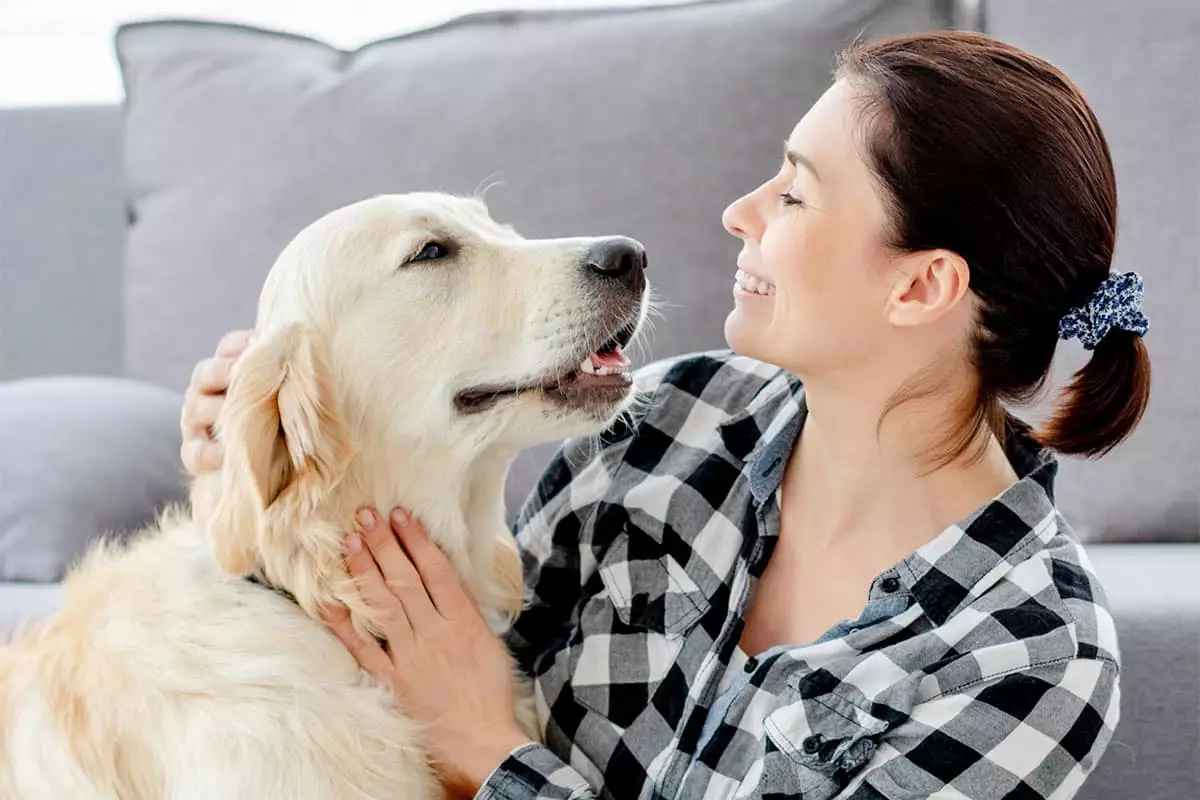Dogs possess an unparalleled ability to perceive human emotions, often sensing our lowest moments before we even comprehend our feelings. Unlike humans, whose understanding can be clouded by biases or distractions, dogs operate on a pure, instinctive level, attuned to subtle shifts in body language, tone, and energy. This deep empathy positions them not just as pets, but as silent guardians of our mental landscape. They don’t need complicated cues; their soulful eyes, gentle nudges, and unwavering presence communicate a profound understanding that words could never replicate.
From the moment we bring a dog into our lives, we embark on a journey of reciprocal emotional recognition. They learn to read our cues, whether it’s a restless fidgeting, a faraway gaze, or a subdued tone. This innate sensitivity is what allows them to offer comfort in the most genuine way possible. While humans often struggle to truly understand each other, dogs tap directly into our emotional core, bridging gaps perfectly and effortlessly. Their silent support is one of the most remarkable forms of emotional caregiving, often surpassing our expectations of what companionship can be.
Breed-Specific Talents in Emotional Support
Different breeds have evolved with particular traits, making some better suited as emotional anchors. For example, Golden Retrievers are renowned for their perceptiveness; they seem to sense your mood changes and respond with a calm, steady presence. Resting their head on your lap or leaning gently, they mirror your sadness with compassionate silence, comforting rather than overwhelming. Their stable demeanor provides a sense of safety, especially during stormy emotional weather, making them arguably one of the best breeds for emotional support.
Similarly, Labrador Retrievers excel at reading social cues and adapting their behavior to your emotional state. When you’re feeling low, they respond with playful antics or tender touches, encouraging laughter or comforting silence as needed. Their big hearts make them natural emotional amplifiers—they can be your comic relief or your quiet confidant, often doing both effortlessly. Their presence feels like a warm, familiar embrace that assures you you’re not alone, no matter how tough the day.
Cavalier King Charles Spaniels, with their gentle gaze and affectionate nature, bring a subtle but impactful form of emotional comfort. They seem to know exactly when to offer a snuggle, providing soft, persistent companionship that can turn any sorrow into a shared moment of quiet solace. Their ability to sense shifts in energy and respond with love underscores the therapeutic power of affectionate dogs who thrive on closeness and gentle support.
Surprising to many, Greyhounds—those slender, elegant runners—are surprisingly calm and attentive. Their stillness and quiet companionship make them perfect for moments of introspection or grief. They often settle where you are, respecting your pace and mood, with minimal fuss but maximum comfort. Their demeanor reminds us that sometimes, silence and presence speak volumes more than words ever could.
Border Collies, often associated with high intelligence and agility, are also deeply in tune with emotional nuances. Their keen observation skills allow them to pick up on tiny behavioral cues, adjusting their presence based on what you need—be it a playful distraction or gentle companionship. They are the chameleons of emotional support dogs, responding precisely to your internal state and offering a form of connection that is both profound and intuitive.
Breed-specific behaviors aside, it’s crucial to recognize that these animals do not merely react instinctively—they understand, empathize, and respond with a depth that many humans struggle to achieve. Their loyalty and emotional sensitivity are a testament to their role as more than pets: they are partners in emotional healing.
The Deep Emotional Impact of Canine Presence
Dogs don’t solve our problems; rather, they help us bear them. Their ability to “sit with” our pain without judgment, to offer a calming touch without words, creates an environment where healing can quietly take root. They serve as living, breathing symbols of unconditional love—proof that acceptance and presence can nurture resilience. For many, this companionship ignites a profound sense of being understood, even when we do not explicitly ask for support.
This unique capacity to fill emotional voids is not coincidental but rooted in the evolutionary bond between humans and dogs—an ancient partnership built on mutual care. When life’s storms rage, dogs stand as steadfast anchors, reminding us that vulnerability isn’t a weakness but an essential part of our humanity. Their presence can lower cortisol levels, boost oxytocin release, and foster feelings of safety and purpose. This biochemical magic underscores what many instinctively know: dogs are not just animals, they are emotional healers wrapped in fur.
Some critics might argue that this bond places an unfair expectation on dogs or that it anthropomorphizes their behavior. However, dismissing their emotional intelligence disregards countless anecdotal and scientific validations showing dogs’ capacity for empathy. Recognizing and embracing this trait allows us to deepen our appreciation for these remarkable beings, understanding that their companionship can substantially influence mental health.

